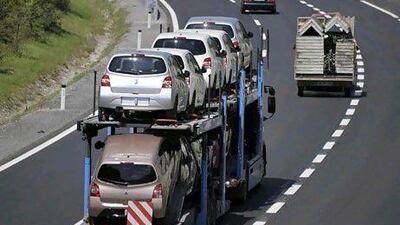For the French car manufacturer Renault, it has not so far been a vintage year. So troublesome has it proved any piece of good news would be a breath of fresh air.
Not that the bad news has quite finished. Following the acute embarrassment it brought upon itself by wrongly accusing three long-serving executives of industrial espionage, namely selling secrets of its electric-car project, there is now the inconvenience of mixed trading results.
World sales of cars and light commercial vehicles rose in the first half of the year by 1.9 per cent, but this growth relied entirely on markets outside Europe, notably Brazil and Russia. Group sales within Europe fell by a 7.4 per cent (and a whopping 20.9 per cent for last month alone), and the modest overall increase was possible only because of impressive figures elsewhere, where sales were up 20.4 per cent.
"They are suffering because they have a lack of new products," Reuters reported Thierry Huon, from Exane Paribas, as saying.
But it is from the intensifying battle for dominance of the electric car market that more encouraging news for Renault has finally surfaced.
The French motorway operator Vinci Autoroutes has announced agreement with Renault on a battery-charging system on France's major road network. Facilities will be provided in motorway service stations, with Vinci promising an energetic installation programme between now and 2013.
There will be a low-key start, with quick-charging equipment initially available on only a few of France's busiest motorway commuter routes: between Paris and Chartres, Le Mans, Orleans and Tours; and, in the south, between Montpellier and Arles.
But the support network to keep electric cars on the road is sure to grow rapidly if the market proves as strong as the companies predict.
Renault plans to launch three of its range of four electric cars later this year: the Kangoo multipurpose vehicle, the Fluence saloon and the two-seater Twizy. Production of the eagerly awaited Zoe is still scheduled for next year.
By 2020, the company estimates, one vehicle in 10 it sells around the world will be electric-powered.
Putting the projected development in different terms, Eric Besson, the French industry minister, said the firm would be building more than 200,000 electric vehicles a year by 2016.
Inevitably, however, there is an element of uncertainty about even the electric car programme.
The company could have done without such headlines as "Doubts and tension at the Renault factory …" above an item in the weekly newspaper Journal du Dimanche highlighting a delay, from next year to the beginning of 2014, in starting production of electric-car batteries at its Flins plant outside Paris.
To the consternation of unions, this will push back the proposed recruitment of 500 employees at a plant where the full-time workforce has been cut from 3,400 to just under 3,100 in two years.
"Management explanations about technical problems are not convincing," Ali Kaya, a union official, told the newspaper. "… we are asking ourselves whether there are doubts about potential volume of sales."
In fact, the technical problem is a business one, having to adjust the programme to the fact that state financing will no longer be made available. France's strategic investment fund (FSI) has dropped plans to invest €125 million (Dh651.1m) in the project and a public loan of €100m has also been withdrawn, according to the financial daily La Tribune.
Were the decisions made with Renault's acquiescence, or forced on the company? Whatever the full answer, Renault remains outwardly optimistic and insists having to rely, for the time being, on batteries from external sources will not affect the programme or its profitability.
The company is determined to present a brave face as it proceeds with its partner Nissan - already making an impact with the Leaf electric car - on a joint €4 billion bid to become world leaders in the sector.
One suggestion, floated by the business monthly L'Expansion, has Renault quietly working on a cheaper, more efficient battery that means it would be good sense to revise the original timetable.
"It remains to be hoped, for Renault," the magazine concluded, "that the management really does knows what it is doing."


